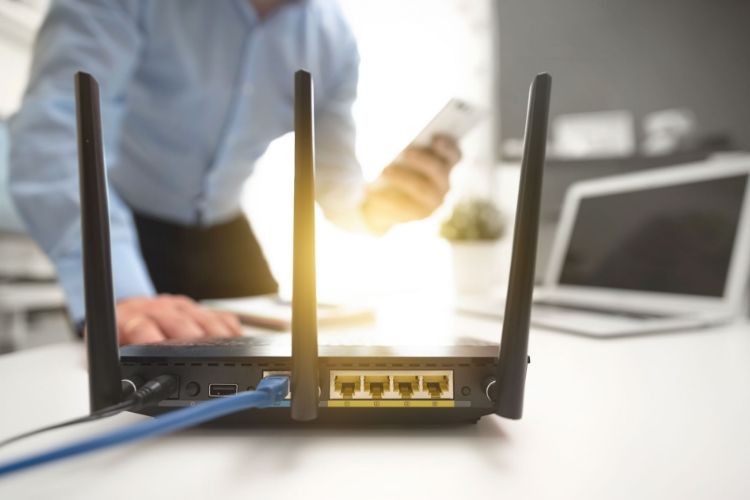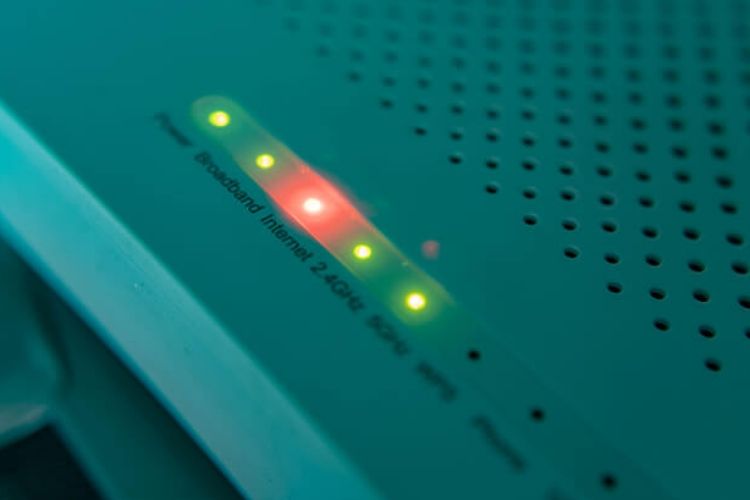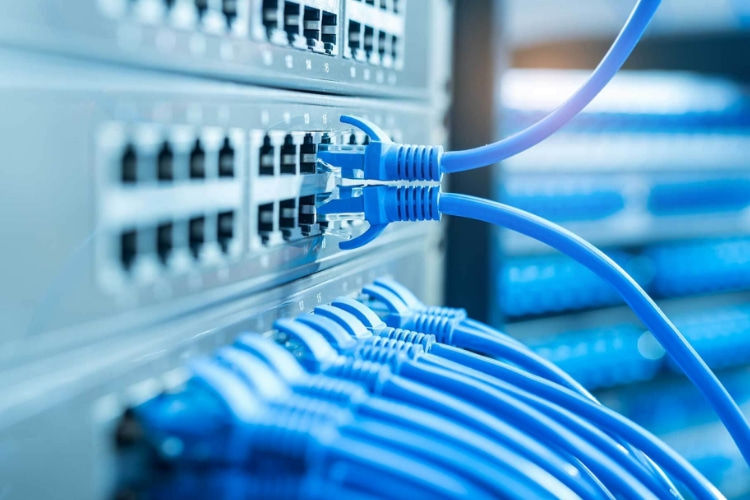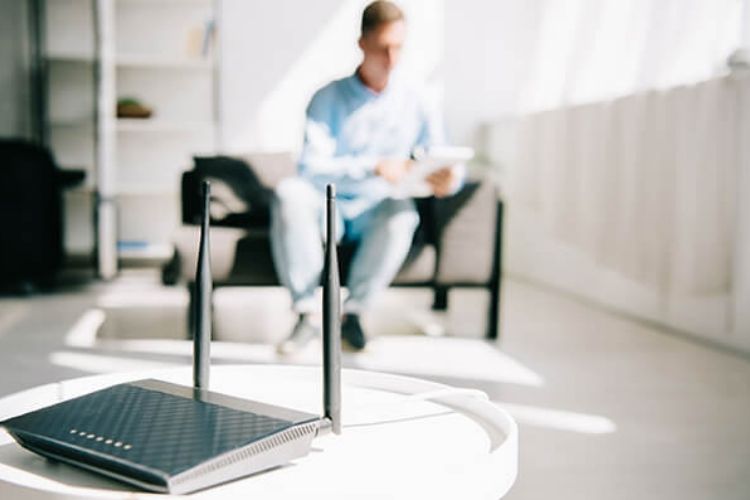We’ve all thought we’re being overcharged on our internet bill at some point. The price we usually sign up for is not always the figure that appears on our monthly bill. Worry not if you’re clueless about why you’re paying the extra amount. We’ve broken down the true cost of internet plans that you receive every month.
Before you get mad at your provider and browse for internet deals to switch your internet service, give this blog a read. You might cool down. Here’s a cute tap on the head to help!
And just by the way, why is the Internet so mad expensive in the U.S? According to Consumer Reports 2022, an average home internet plan in the U.S. costs around $60/month. This amount does not include additional charges like equipment fees, equipment rentals, or data overage charges. Once you add all that up, the amount goes higher.
What We Discovered
- Your monthly bill comprises your monthly internet cost, taxes based on your area, equipment rental fee, and any data overage charges if applicable.
- Your first bill may have equipment charges, activation fees, and installation fees.
- You can lower your internet bill by reassessing your needs, switching to a cheaper plan, bundling your services, or using your own equipment to avoid extra charges.
With that said, let’s dissect and understand the true cost of your internet bill so you don’t sweat upon receiving next month’s bill.
Understanding Monthly Internet Bills
Your monthly Internet bill will have a combination of service charges, taxes, and data overage charges (if applied).
Monthly Internet Cost
The monthly internet cost is usually the figure you signed up for, or what your provider markets. The monthly internet cost may vary if there is a promotion during the period you signed up for the service. There are two types of internet plans in terms of monthly internet costs. Some plans offer low introductory prices, while some offer price-lock guarantees.
Introductory vs. Price-locked
Low introductory plans offer discounted prices for a promotional period, which is stated along with the internet plan. The original price of the plan is also stated so you know what you will be paying once the promotional period ends.
On the contrary, price-locked plans come with a guarantee of ‘no price increases’ usually followed by a time period for which the guarantee is applied. These plans remain price-locked for 1 to 3 years and are ideal if you do not want your internet bill to keep fluctuating.
Government Taxes
The next charge on your bill would be taxes. This amount is based on your location as taxes vary depending on the U.S. state you live in. Taxes are included in your monthly internet cost by some providers or charged on top of your plan every month. If taxes change, so would your overall bill.
Data Overage Charges
Some internet plans offer unlimited data while others come with a data limit. For plans with data limits, you will be charged a data overage fee once you have used the allowed data. Data overage charges also vary from provider to provider and are mentioned in the fine print or a disclaimer. Make sure to check how much data you’re allowed if your plan does not offer unlimited data.
Equipment Rental Fee
Some providers offer you to rent out internet equipment for a charge every month. This will be reflected in your bill as a monthly charge.
One-time Charges
Unlike the above-mentioned charges that will appear on your bill every month, some fees are charged only once, usually with your first bill. These include one-time charges like equipment fees, installation charges, and internet activation fees.
One-time Installation Fee
Installation charge is a one-time fee but is often quite high. Some providers waive it off as a promotion to attract new customers. However, if there is an installation fee, you will have to pay it on your first bill.
Equipment Charges
Another one-time charge is for internet equipment. If you’re not leasing or renting equipment, you might choose to buy it and hence pay for it in your first bill. You can always choose to avoid this charge by using your equipment or buying it from another source.
Internet Activation Fee
Internet activation is a one-time fee that your provider charges to activate service at your address. The fee is usually minimal and you will only pay it on your first bill.
Factors That Affect Your Overall Monthly Internet Bill
Your monthly internet cost can vary depending on a few factors, some of which include:
Availability at Your Address
Not every provider in the U.S. will be available in your area. The providers that offer services in your area are the only ones that you can choose from. This narrows down your choices and may also be a factor affecting your overall bill. Some providers are more expensive than others due to better infrastructure, latest technology, and distance from your location.
You can check which providers are available in your area and choose a plan that best suits your budget.
Connection Type
You can choose between a cable, DSL, fiber, or satellite internet connection when buying an internet service. Each of these connection types will have a different average monthly cost.
Satellite internet plans are the most expensive due to their infrastructure, and widest availability. This is followed by fiber internet which is the fastest and most reliable internet type. On the other hand, cable internet and DSL plans are comparatively cheaper.
Promotions and Discounts
Providers that offer regular promotions and discounts may have a lower monthly cost than those with fixed terms. As discussed above, some internet providers offer promotional discounts, lowering the overall cost in the initial months.
How to Lower Your Monthly Internet Bill?
There are ways to limit your overall internet bill like using your own internet equipment rather than buying or renting from your internet service provider. Secondly, look for internet providers that offer plans with unlimited data and no term contracts to minimize your cost. Bundling up your internet with TV, or phone can also help you save with some providers.
Let’s explore some ways you can lower your internet bill:
Switch Your Internet Provider
With most providers constantly expanding their networks, you might have more internet options in your area now. To check all the internet providers available at your address, simply enter your zip code into our search tool. Who knows, you might find a cheaper plan more suited to your home.
Reassess your Internet Speed Requirement
Are you paying more and using less? What a lot of people don’t know is that an average American household with 2 to 3 people can do most online activities with a 100 – 300 Mbps plan. If you’re paying for more, you should check out how fast a 100 Mbps internet is and if it meets your internet requirements.
You can also test your internet speed and check if you are getting the promised speed.
Bundle Your Internet with TV, or Phone
Some providers offer discounts on your overall bill if you buy two or more services from them. You can add a TV package, or a home phone to sort all your residential needs in a single bill.
Bottom Line
The true cost of your Internet is usually a bit higher than what you think you sign up for. A lot of added fee like equipment charges, installation fees, taxes, and data overage charges may be why your overall bill is different than what you expect. Do try our tips for lowering your monthly internet bill, and start by browsing internet providers in your area.
Frequently Asked Questions
How much should I pay for the internet? ![faq arrow icon]()
The average internet plan costs around $60 to $70, depending on the connection type you choose and your location.
What is a good internet speed for home? ![faq arrow icon]()
A 100 Mbps internet plan is usually sufficient for a household with 2 to 3 users. If you need the internet for more users with extensive usage, you might need a faster internet plan.
What to consider while choosing an internet service? ![faq arrow icon]()
To choose the right internet plan for your home, you first need to calculate your usage and how much speed would be sufficient for you. You should also consider the internet connection type. Typically, fiber internet offers the fastest and most reliable internet connection.
Table of content
Detailed Provider Comparisons
Free On-Call Consultation
Top Internet Deals
Recent Articles
How to Speed Up Cable Internet?
Discover ways to optimize and improve the performance of your cable internet as recommended by industry experts
Read moreBest Modem for Cable Internet - Complete Guide
Check out our list of best modems for cable internet for optimized internet performance
Read moreWhat is Cable Internet & How is it Different from Others?
Discover all about cable internet and learn how it compares to other connection types
Read moreBest Modem-Router Combos for Cable Internet
Check out our roundup of the best modem-router combos for cable internet for better and solid internet performance
Read moreTable of Content





